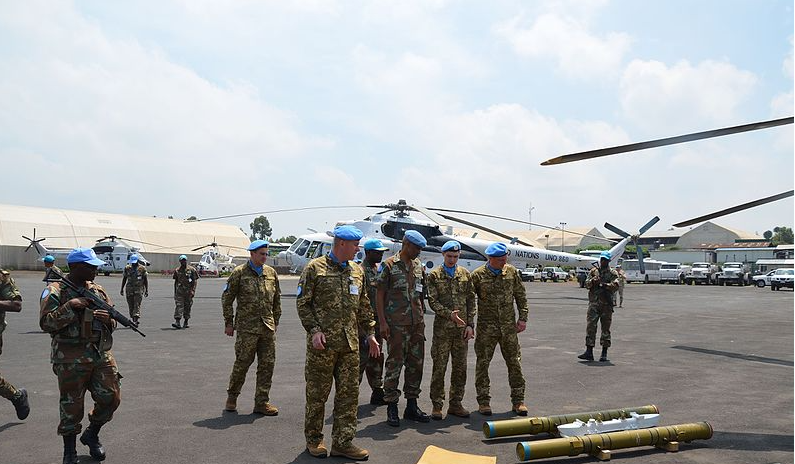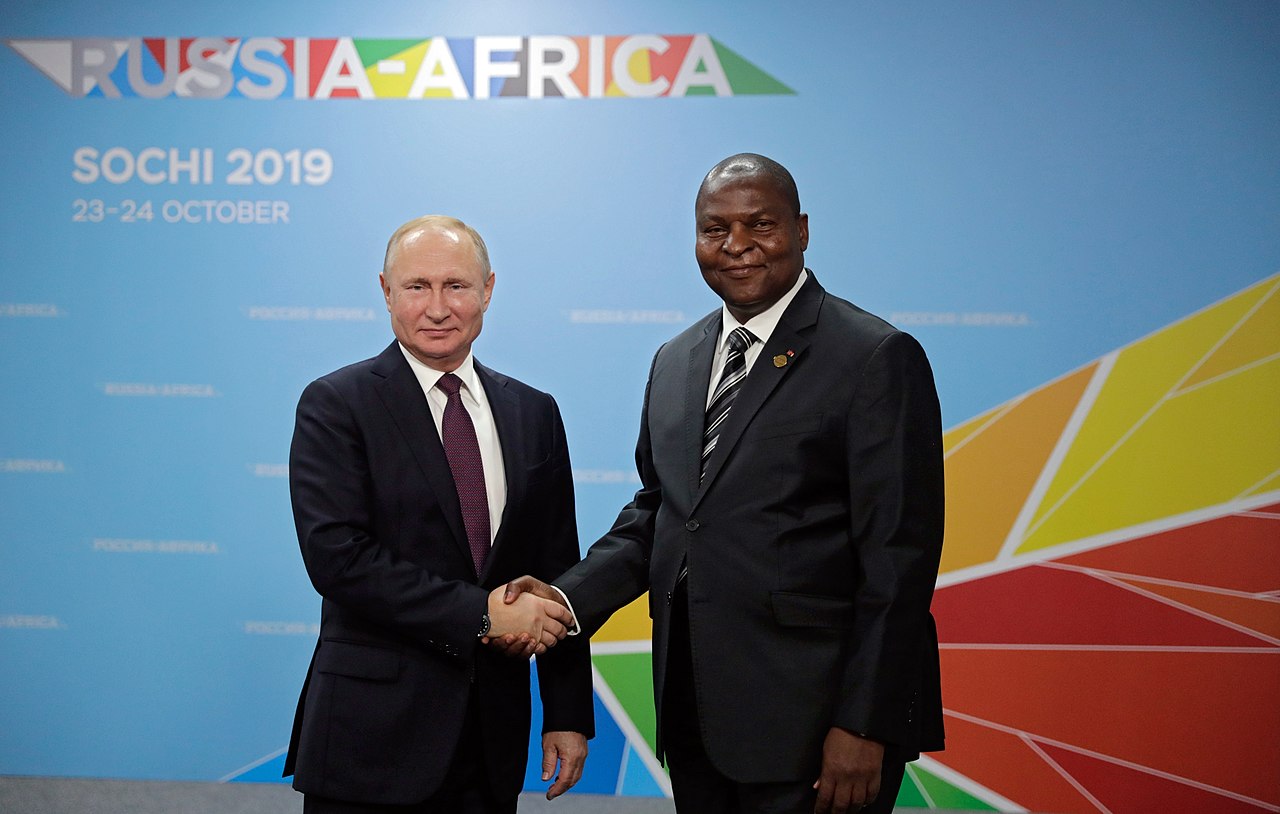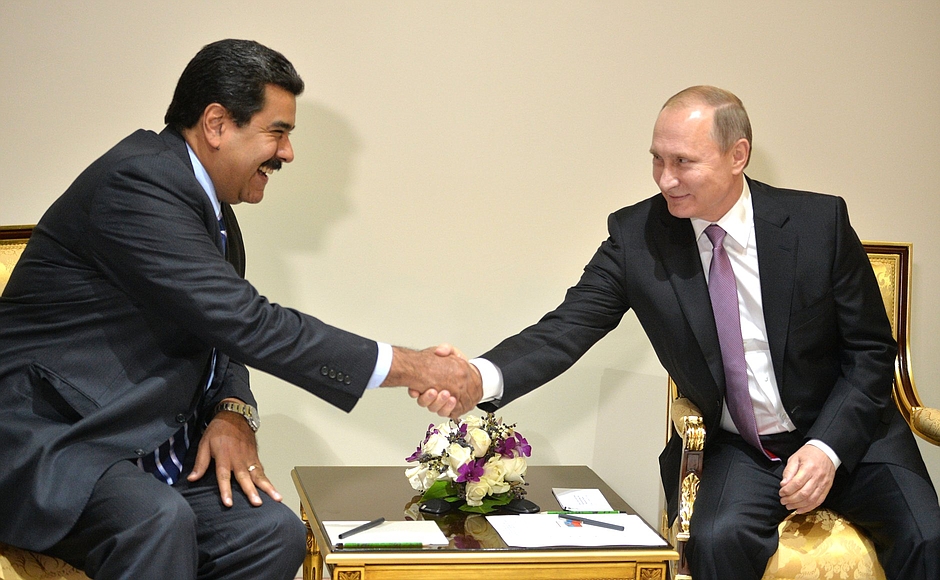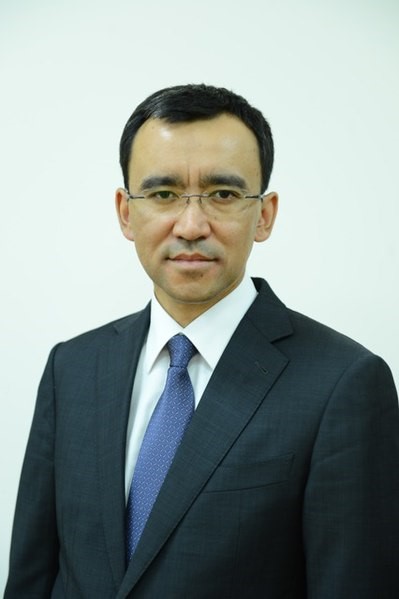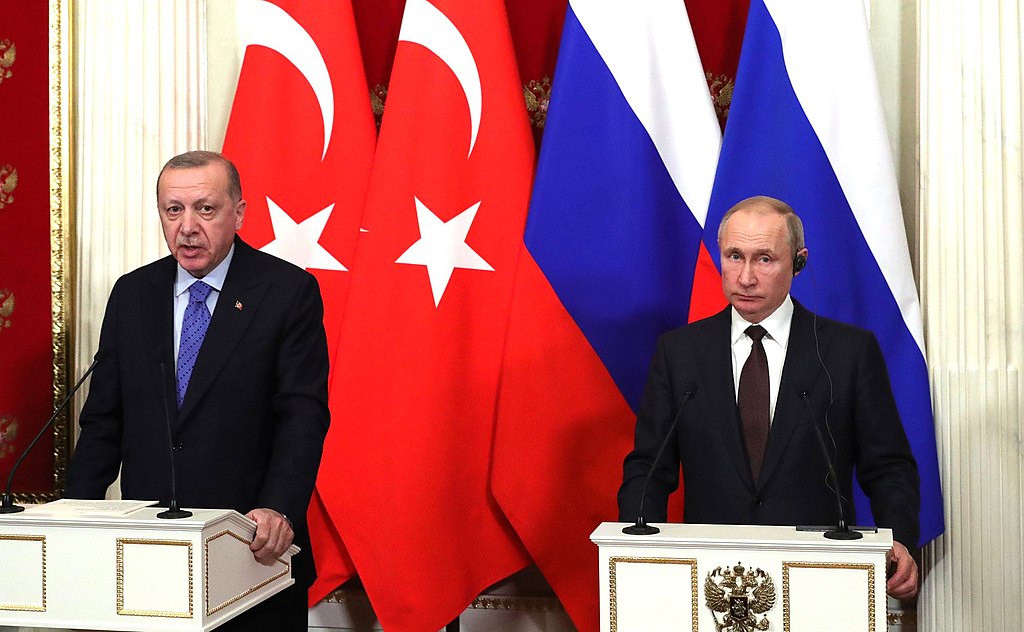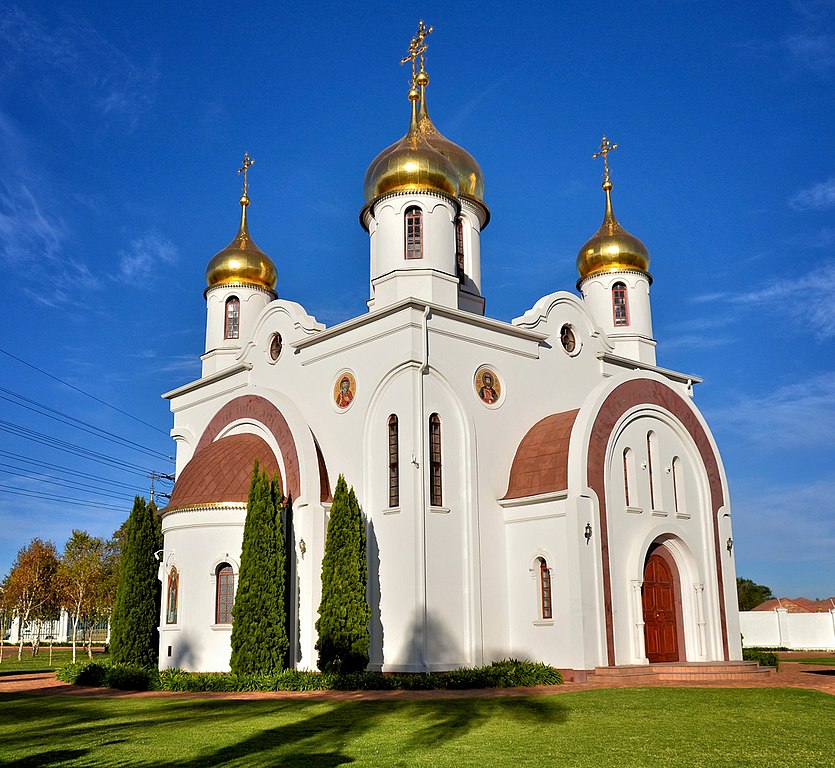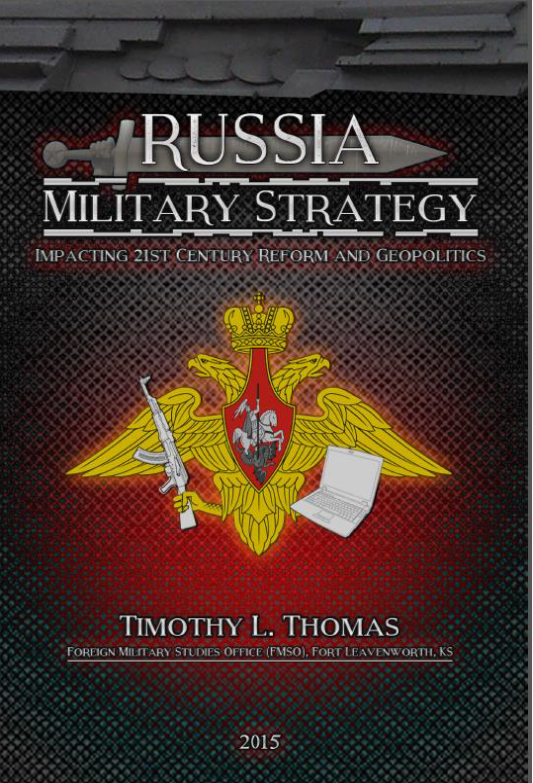“In addition to the current armored trains in the railroad troops (there are two railroad battalions in the separate railroad brigade in the Southern Military District), we have restored the “Amur” armored trains for special missions in zones of military conflict and restored the “Baikal” military escort trains with their cranes and supply of construction material.”
Railroads are the major means of material transport in Russia. The Russian Railroad Troops are an established branch of the Russian ground forces. Before the Second Chechen War, the railroad troops built a rail line into Dagestan that proved valuable to the successful Russian effort against Chechnya. Railroad Troops build rail lines, rail bridges, switching yards, and tunnels. They also operate armored trains that mount artillery, air defense systems, and other armaments. The pro-government newspaper Izvestia sent two of its premier military reporters to interview the Chief of the Railroad Troops. In addition to providing background on the railroad troops and their mission, he discussed new technical plans and training developed to incorporate robotics into the railroad troops. In particular, he notes that military scholars are conducting research and development in the uses of robotic systems to support railroad troops. Although not stated explicitly, the accompanying excerpts of the interview imply that Russian trains manned by Railroad Troops may play a role in the Ukraine invasion delivering essential combat equipment to the area of conflict.
Source:
Roman Kretsul and Alexi Ramm, “Роботизированные Системы Скоро Наудт Применение в Железнодорожных Войскак (Robotic systems will soon be adapted by Railroad Troops), Izvestia (Pro-Kremlin daily newspaper), 11 February 2022. https://iz.ru/1289710/roman-kretcul-aleksei-ramm/robotizirovannye-sistemy-skoro-naidut-primenenie-v-zheleznodorozhnykh-voiskakh
The railroad troops are overshadowed by other structures in the Ministry of Defense. However, the importance of their work is not underestimated. For example, in 2015, railroad troops built a bypass line around Ukraine. General-Lieutenant Oleg Kosenkov, Chief of the Railroad Troops Directorate in the Ministry of Defense sat for an Izvestia interview that covered their experience in the construction of the Baikal-Amur Magistral (BAM) railroad and discussed the new technical plans and training developed to incorporate robotics.
The public knows little about the specific details of the railroad troops. What are they for and what missions do they do?
Railroad troops are special troops designated for the restoration, blocking, mine removal, technical oversight and construction of railroad lines. They improve their stability and capacity, construct feeder lines for railroad bridges and junctures, operate and install floating railroad bridges and support the Armed forces of our country.
In recent years, the Army has undergone serious reforms. Did these have an impact on the railroad troops?
Under the direction of the Minister of Defense, Army General Sergei Shoigu, we reorganized the structure of the railroad troops on a different vector-from a massive, one might say overdone structure to a smaller, more manageable and optimized structure. We formed 13 support centers for mobilization deployment. Their primary mission is to accumulate, maintain and upgrade weapons, military and specialized technology and material items; support mobilization support bases; and to provide administrative points for the receipt of mobilization resources which conduct priority measures. During this period, we formed four bases for construction material.
In 2015, we undertook more signification measures for organizing construction. As a result, the separate railroad brigade (the primary railroad troop organization) gained the status of a formation consisting of separate military regiments. The railroad troops then consisted of 10 formations with 58 ready separate military regiments. At the end of 2015, the Ministry of Defense formed the scientific-technical committee for the railroad troops. Later, the railroad troop’s scientific-technical testing center formed.
In 2015, the railroad troops built the Zhyravka-Millerovo stretch in southwest Russia. What experience did they receive from this construction?
The president gave the mission to the Ministry of Defense to build the railroad bypass around Ukraine. They built a dual-track electrified railroad section for the South-East and Northern Caucasus railroad using troops from the Southern, Western and Central Military Districts. The project involved some 1,700 personnel and 700 trucks, engineering and specialized equipment. In a short period, the railroad troops carried out a major project to build a permanent new railroad line….
Last year the railroad troops worked on the reconstruction of the Baikal-Amur Magistral (BAM). Did this present difficulties or was it routine and orderly?
In April 2021, the railroad troops began laying a section of double track from Ulak to the Fevralsk Station on the Far Eastern railroad and set about reconstructing their assigned section of the BAM. It turns out this was one of the most difficult sections.
At this time, five railroad troops’ formations with their component of specialized military units and subunits are working to complete this project. They are quartered in small garrisons of contemporary modular housing in accordance with the established norms for food and housing. During the course of four seasons, we studied the influence of climate during the construction process. And you may believe that, having studied the experience of the earlier construction of the magistral, the forces have already finished a significant portion of the work. You may say that slowly we are beginning to master the harsh taiga….
We always hear how the Navy, Aviation, and the Aerospace Forces receive the newest military technology. Are the railroad troops also receiving new, breakthrough technology?
…Over the past several years, the railroad troops units have received technology for transporting swimming railroad bridges, for measuring ballast for railroad beds and independent movement. In the future, they plan to have new track and railroad tie layers and also improvements in wheeled technology for rail. Further, military scholars are conducting research and development in the uses of robotic systems to support railroad troops. I believe that they will soon be ours for use.
Are there any plans for the railroad troops to build new sections of track, bridges and tunnels?
Yes, we are working with the Russian Federation Ministry of Transport and the government-owned Joint Stock Company “Russian Railroads”. We are cooperating on using the railroad troops for new construction and reconstruction. Currently we are working on a section of track as part of the third stage of developing a rail line from the BAM to the Eastern Military Training area.
Will your forces receive new specialized trains or locomotives? Are you looking into developing a modern analog to the armored train or something similar?In addition to the current armored trains in the railroad troops (there are two railroad battalions in the separate railroad brigade in the Southern Military District), we have restored the “Amur” armored train for special missions in zones of military conflict and restored the “Baikal” military escort train. Both can carry cranes and supplies of construction material. There is no analog to these specialized mobile trains. Running these trains on railroads provides technical reconnaissance, mine clearing and removal of damaged railroad debris, transportation for personnel and accompanying military echelons. These trains are always in the “hot” (ready -not damped) mode ready to act under any circumstance. Within an hour they must be ready to leave the station on the start of a long journey to a designated place.

